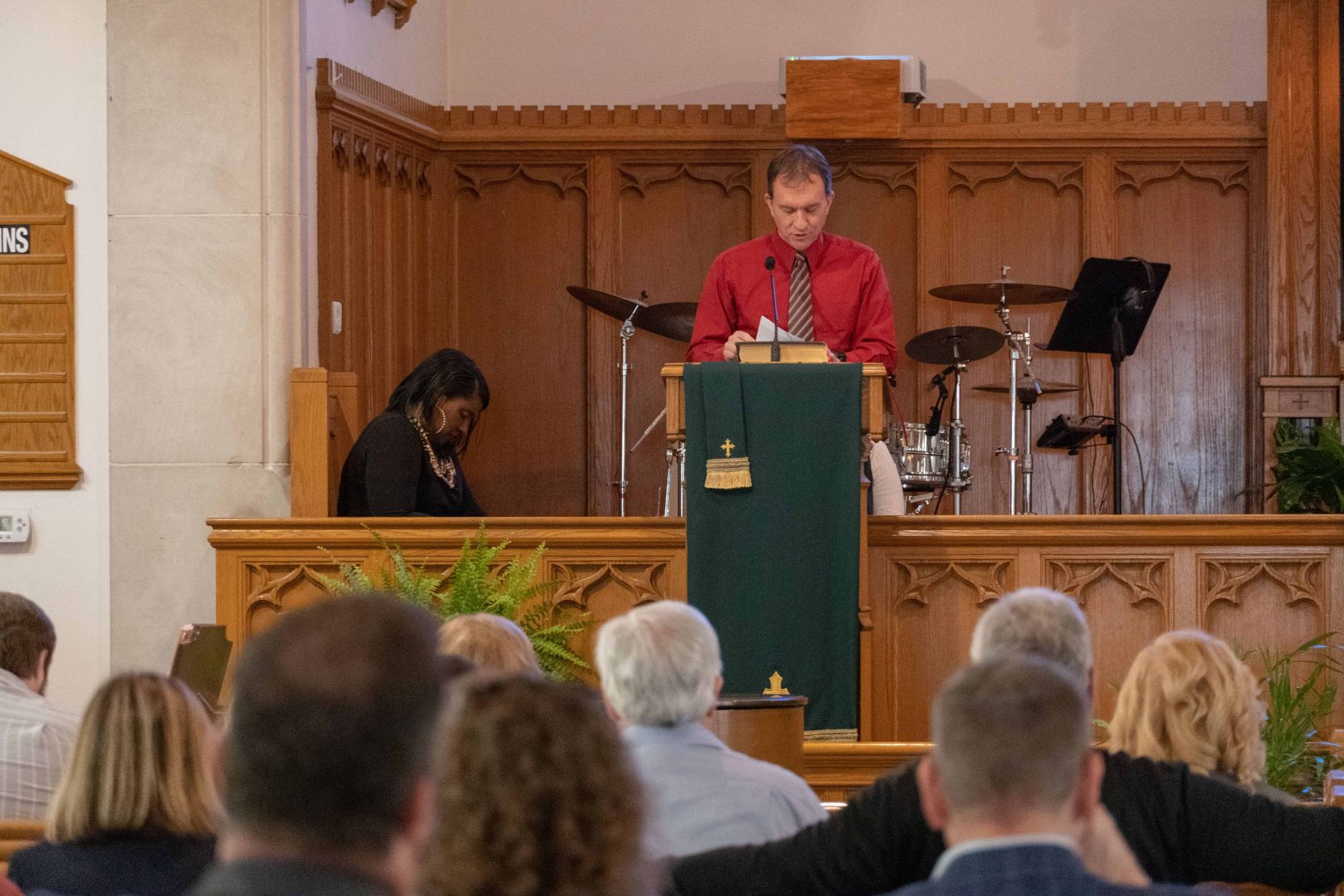The University of Indianapolis has been affiliated with the United Methodist Church since 1968, according to UIndy’s website. Despite 50 years passing, the university continues to maintain the relationship, according to UIndy’s University Chaplain Reverend Jeremiah Gibbs. With the new dedication of the University Chapel on Sept. 30. Gibbs thinks it is more important than ever for students and faculty alike to understand how UIndy continues to work with and for students, regardless of whether or not they are Christian. Gibbs also said that it is because of UIndy’s Methodist affiliation that the university is able to provide a robust interfaith effort.
“Because of our United Methodist affiliation, we have that full-time staff of four in my office that our entire job is to help facilitate the religious lives of students, including students of other religious traditions,” Gibbs said.
Working to support UIndy students and providing them a more fulfilling religious life while on campus takes form in two trajectories, according to Gibbs. One of these directions is the Ecumenical side, which seeks to provide opportunities and support to Christian students on campus. With a large portion of students who identify as Christians on campus, Gibbs said that it is important to continue the tradition of supporting these people, as well as to connect them with like-minded students.
The Interfaith Scholars, a group of students that are mentored by staff, attend retreats and design regular campus programming to fulfill the second goal: promoting Interfaith, according to Gibbs. These students have worked with the Ecumenical and Interfaith staff to provide religious services and framework for every student on campus, Gibbs said, regardless of their traditions. An example is the Resident Assistant (RA) chaplains on campus, who serve primarily in freshman dorms. They work to provide representation in their resident buildings for every student’s religious traditions by providing support to students, according to Gibbs.
“The interfaith programming has been primarily about creating a structure so that our students who are religious, but not Christian, have opportunities to get the support that they need, but also to be able to create conversations across religious traditions,” Gibbs said.

One of the key projects that the interfaith program has been working on is a virtual interfaith holiday calendar, Associate Chaplain Reverend Arionne Lynch said. She has been working with the Interfaith Scholars on this project in order to make an easily accessible calendar available online to students, faculty and staff that highlights different holidays across various religious traditions. The calendar is an extensive, collaborative effort.
While the calendar is being completed, Lynch said that she does not want students to miss out on having information regarding holiday observances. For example, in response, an email was sent out by the Office of Inclusion and Equity on Sept. 26 informing the UIndy community about the Jewish religious observances for Rosh Hashanah and Yom Kippur, which Lynch helped prepare as a preliminary look into what the calendar will be like.
Gibbs said that it is important to recognize observances for holidays across different religions. One year, Yom Kippur fell on the same day as UIndy’s homecoming. In the Jewish tradition, Yom Kippur is a day of mourning and grief, so to have conflicting celebrations going on at UIndy at the same time was significant, said Gibbs. The interfaith holiday calendar will provide a good educational opportunity for the UIndy community to learn about a diverse variety of upcoming holidays they may not be aware of.
“We really wanted to be able to give the campus information that would allow them to be able to celebrate with the students who celebrate, or, in some cases, just be able to give the students the space to be able to observe their various holidays [at UIndy],” Gibbs said.
Giving students the facilities to advocate for themselves and for their needs is incredibly important, especially for students in minority religions, Gibbs said.
Lynch said it is important to understand students of different faiths. She said that the more people learn about people of various cultures other than their own, the more open society will be able to be. To Lynch, one of the most interesting things about interfaith is finding ways to connect across differences.
“As a chaplain, it doesn’t [matter] what my faith is versus yours, it’s how can I show up and be a supportive presence for you regardless of your beliefs… How can I support you? How can I help you navigate the world that you’re in, that we’re all in? And for people to not feel alone, that’s one of our biggest goals for students,” Lynch said.
Both Lynch and Gibbs said that there are ways in which everyone on campus, beyond just the staff at the chapel, can be a system of support for students of different religious traditions.
“I think the most important thing that people can do, that the average student or faculty or staff members can do, is to make sure that they extend hospitality to [all of] the folks here [at UIndy],” Gibbs said. “I just encourage folks to recognize the ways in which the church affiliation allows us to be able to have the support that folks need, not as an impediment.”







